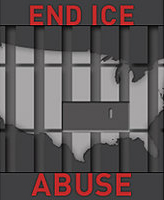The State Journal-Register posted an opinion piece on the new bill, House Bill 3944, which would end the Illinois Eavesdropping Act. The bill, sponsored by Representative Elaine Nekrtiz, would allow citizens to record police activity in a public place - an activity which, under the current law, would result in felony charges. The ACLU of Illinois is advocating for the passage of the bill because it is an infringement on First Amendment rights to gather & disseminate public information.
These days, most of us have the ability to record our surroundings anytime with our cell phones. We’d bet that, before hearing about the Tiawanda Moore case, most people had no idea that hitting the “record” command on their iPhone could get them into such serious trouble.
And suppose you believe a crime is being committed when you start recording? As Moore learned, your word doesn’t matter if a prosecutor decides to bring charges. Then it’s up to a jury, probably following a trial that is very expensive for you.

